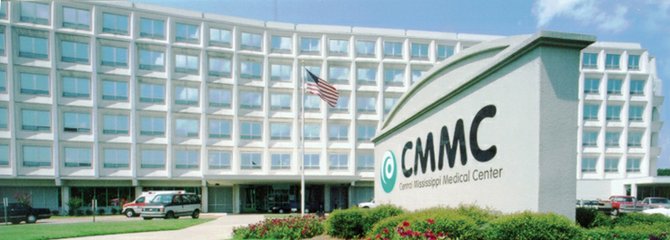Charlotte Dupre, chief executive officer of the Central Mississippi Medical Center in Jackson, said the hospital would benefit if state lawmakers expand the Medicaid health-care program. Photo by Courtesy CMMC
Charlotte Dupré, chief executive officer of the Central Mississippi Medical Center in Jackson, said the hospital would benefit if state lawmakers expand the Medicaid health-care program.
"We have people who are eligible for Medicaid, and they do not sign up for Medicaid, so that's frustrating," Dupré said at Koinonia Coffee House this morning.
Dupré said that if Medicaid expansion takes place, the hospital estimates that about 7 percent of CMMC's uninsured patients would enroll in the program.
Another health-care CEO, Singing River Health System chief Chris Anderson, said this week that his hospital would have to cut jobs and services if lawmakers do not expand Medicaid.
In an already harsh economic climate--in which CMMC has struggled with profitability--Dupré said the hospital is preparing for a provision of the Affordable Care Act that reduces a pool of money that now pays a portion of uncompensated care costs. Under the ACA, the federal government plans to reduce these disproportionate-share hospital (DSH) payments in October 2014.
DSH payments have become the focal point in the debate over Medicaid expansion in Mississippi, where even the fate of the existing program hangs in limbo. House Democrats have twice blocked reauthorization of Medicaid for the next fiscal year to force a debate on whether the state should expand. The Senate passed its version of the Medicaid reauthorization bill, which would have allowed a debate to take place. However, Speaker Philip Gunn, R-Clinton, assigned the Senate bill to the Rules Committee, chaired by Rep. Mark Formby, R-Picayune, where it died on the calendar.
Gov. Phil Bryant and legislative leaders have rebuffed, citing political and philosophical opposition to the ACA, for which Democratic President Barack Obama led the charge and Congress ultimately passed in 2010. Several Republicans sued to block the program, but last summer the U.S. Supreme Court upheld the majority of the law--but allowed states to opt out. Republicans in Mississippi have posited that because the Supreme Court ruled that the federal government cannot punish states for declining to expand Medicaid, it means that DSH payments must remain in place.
Dupré believes that DSH will go away and when that happens, CMMC will lose several millions of dollars, causing the hospital to have to tighten its belt and make up for the losses with other programs designed to attract more patients.
"It's all about growth. If we have the growth that's necessary, we could grow ourselves without a DSH payment," she told the Jackson Free Press.
This week, House Democrats offered what they considered an olive branch to Bryant and Gunn, R-Clinton. Under the deal, Medicaid expansion would not occur if DSH payments remain intact. Bryant has not accepted the Democrats' offer, telling Clarion-Ledger reporter Geoff Pender: "I do not see expansion of Medicaid in Mississippi as it exists today, with all its waste, fraud and abuse."
House Minority Leader Bobby Moak, D-Bogue Chitto, finds it curious that Bryant, who has served at state auditor and lieutenant governor, is now claiming that Medicaid, which his office has overseen since he took office in early 2011, is fraught with waste and fraud.
Moak said Democrats simply want to have a debate on the issue. "If we win, we win. If we don't, we don't. But at least we had a conversation about it," he said.



Comments
Use the comment form below to begin a discussion about this content.
comments powered by Disqus